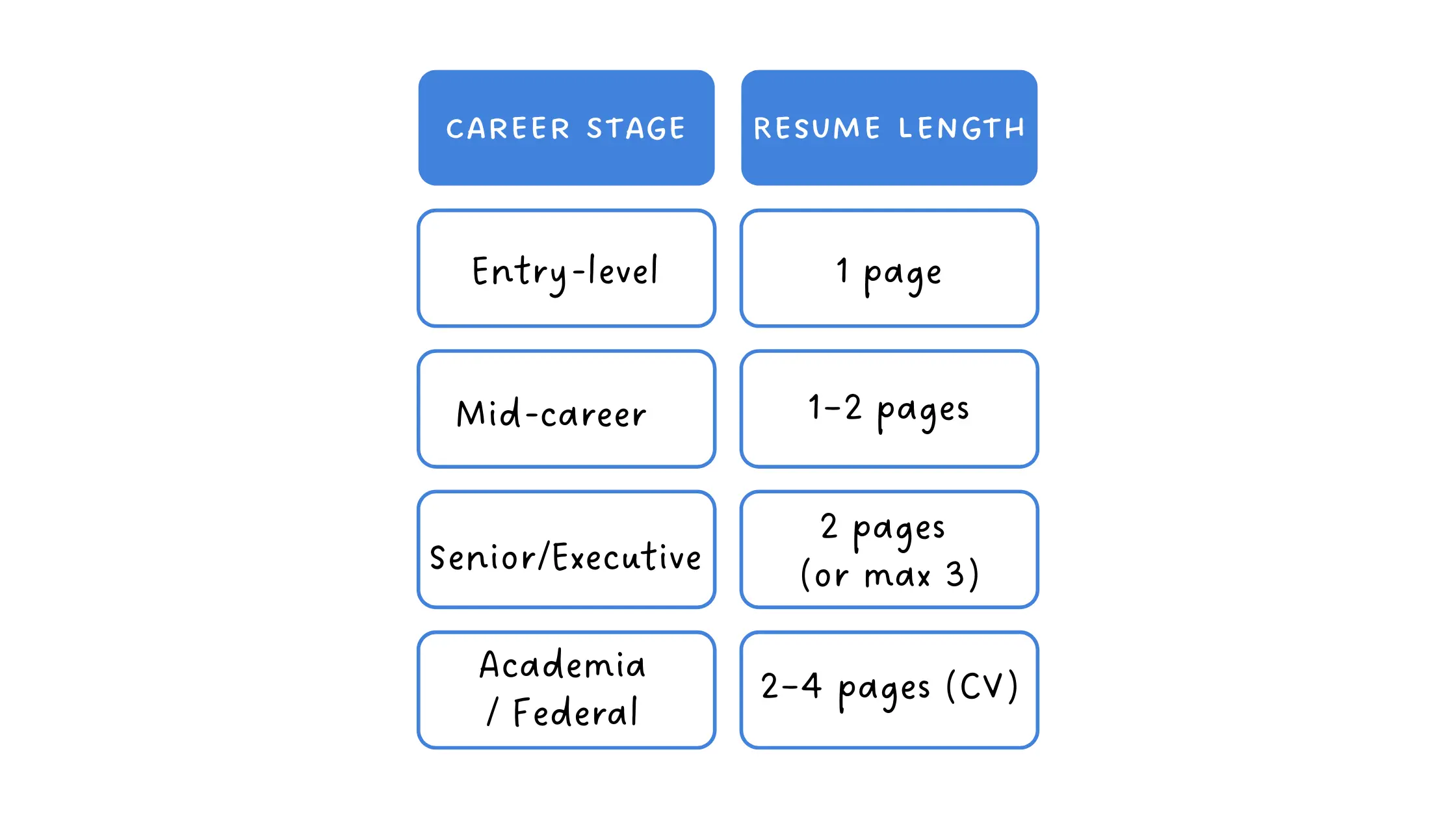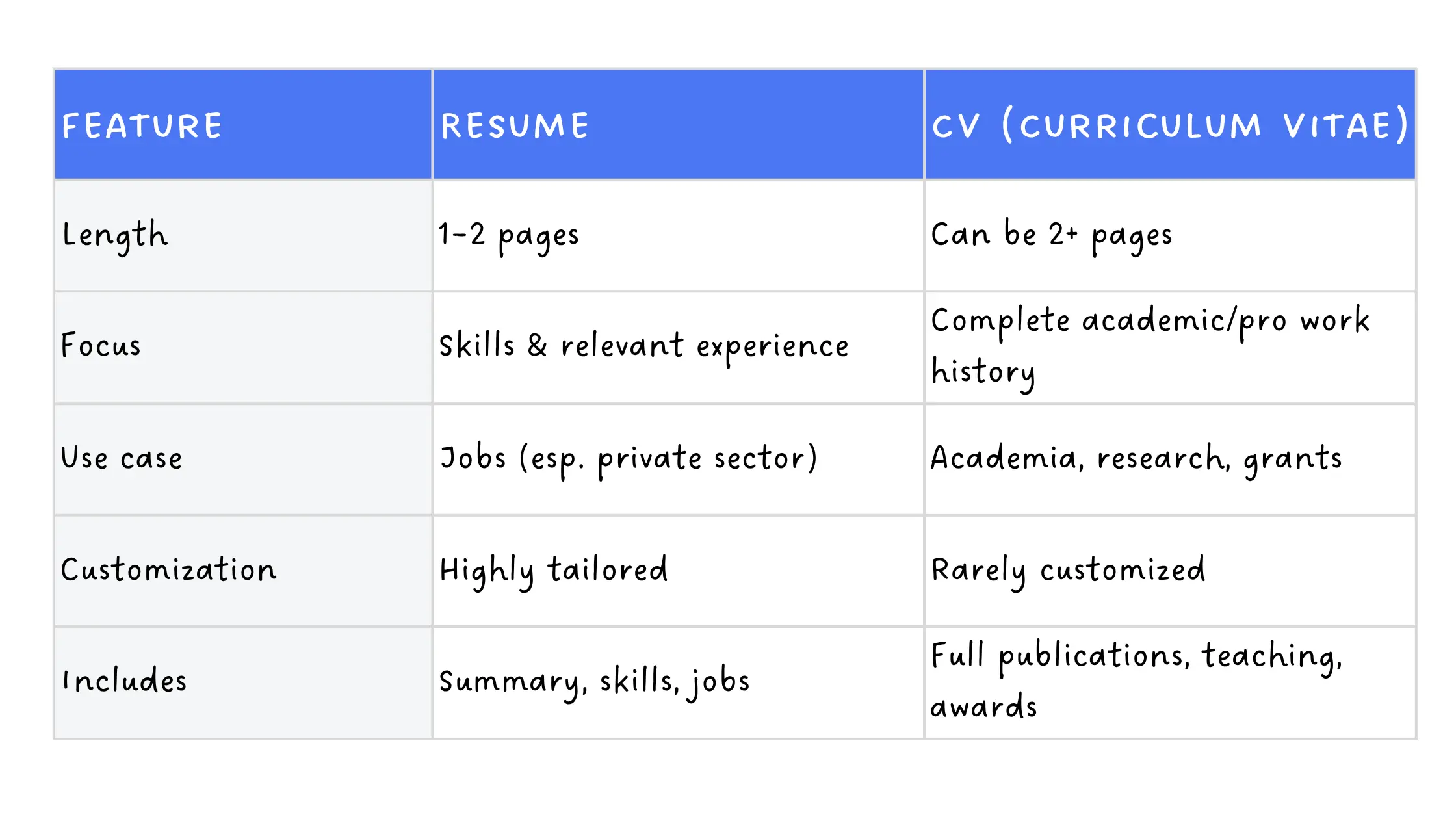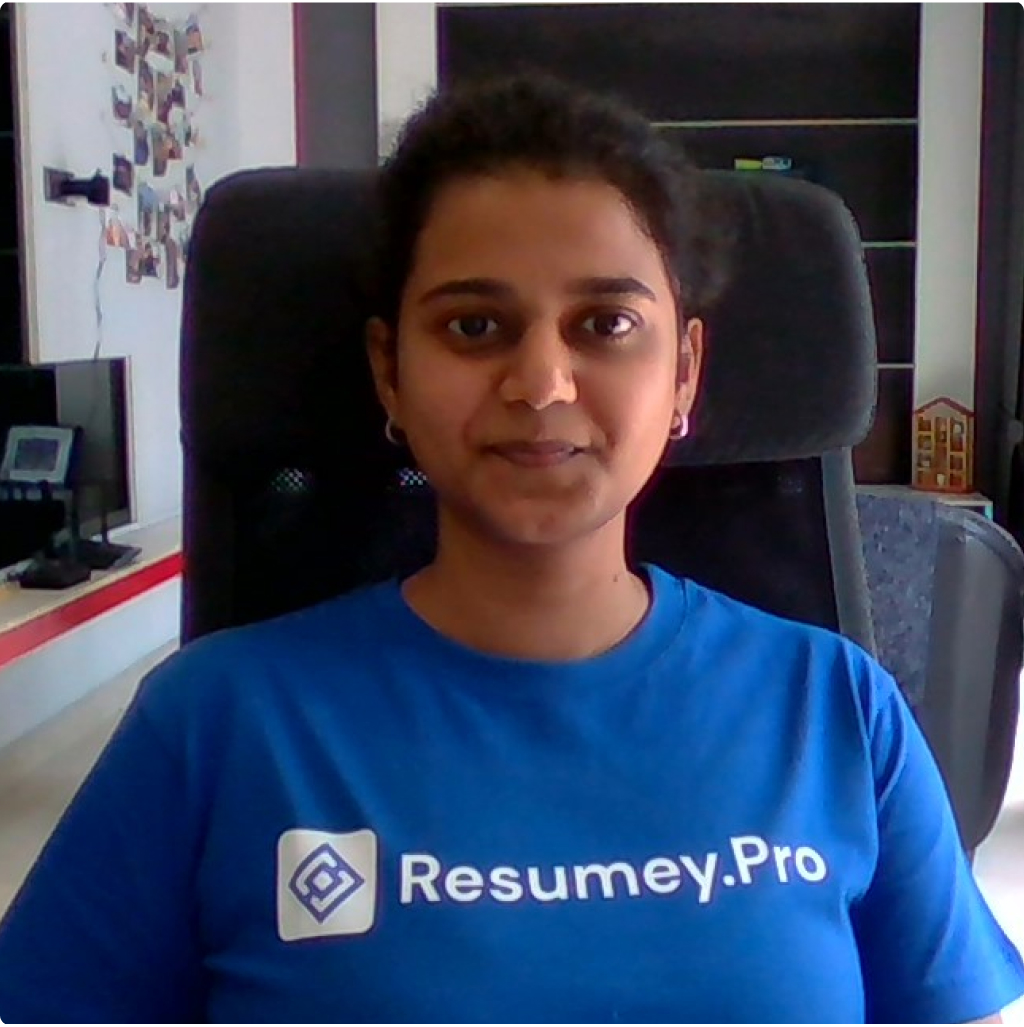If you're wondering how long your resume should be, you’re not alone.
Some say one page. Others say two. A few brave souls submit three.
Your resume isn’t a story. It’s a pitch. And pitches are short.
The TL;DR first
Here’s how long your resume should be:

Now let’s get into the “why” and how to make yours stand out.
Your resume has one job: get you the interview
Recruiters don’t read resumes. They scan them.
For 6–8 seconds. Maybe 10 if you're lucky.
If they can’t find what they need in that time, they move on.
So no, longer doesn’t mean better.
Relevant does.
Can a Resume Be 2 Pages? Yes, But Don’t Abuse It
A two-page resume is totally fine if every line earns its place.
✅ Multiple roles or industries?
✅ Projects, certifications, or leadership worth showing?
✅ Applying for senior-level or specialized roles?
Go for it.
But...
❌ Don’t pad it with outdated jobs.
❌ Don’t write essays under each job title.
❌ Don’t include “References available on request.”
Your second page should be powerful, not just long.
CV vs Resume: What’s the Difference?
Let’s settle the confusion.
Resume = Brief snapshot. Focused. For jobs.
CV (Curriculum Vitae) = Full academic/professional history. Used in research, academia, or some international contexts.
So, how long should a CV be?
As long as it needs to be. But even then, clarity > volume.
 CV vs. Resume: Know the difference before you create yours. Use a resume for most jobs, but a CV for academic or research roles.
CV vs. Resume: Know the difference before you create yours. Use a resume for most jobs, but a CV for academic or research roles.
How Far Back Should Your Resume Go?
If it’s older than 15 years, it probably doesn’t matter.
Unless:
- It’s hyper relevant
- You’re in academia
- It shows long-term continuity in a niche industry
For most roles:
👉 Focus on the last 10 years
👉 Highlight only what's aligned with the job you want
And how far back should a resume go for education?
Only include degrees that matter. Don't mention your high school (unless you're a fresh grad).
Is a 3-Page Resume Too Long?
For most people, yes.
Unless you're a: - University professor - C-level exec - Federal job applicant
...3 pages are overkill.
Don’t list everything you’ve ever done.
Curate. Trim. Sharpen.
Breakdown: Ideal Length for Each Section
Here’s what hiring managers like to see:
- Summary: 2–4 lines. This is how long a resume summary should be. Think elevator pitch, not autobiography. If you need inspiration, see these real resume summary examples that work.
- Experience: 3–6 bullet points per job, max. Quantify everything.
- Education: Just the essentials.
- Skills: Keep it scannable. Organize into categories.
- Cover Letter: How long should a resume cover letter be? Half to 1 page. Say something new, not what’s on your resume.
Skip the fluff. Use action verbs like: “Built,” “Led,” “Improved,” “Scaled,” “Reduced,” not “Responsible for…”
Short, But Not Basic. Make It ATS-Friendly
Don’t confuse simplicity with weakness.
An ATS-friendly resume doesn’t mean boring. It means: - Clean layout - Structured formatting - Keyword-optimized - Easy to parse
That’s why Markdown works beautifully.
No fancy columns. No hidden tables. Just clean, readable text that makes it past the robots and into human hands.
Before You Hit Send, Ask Yourself:
✅ Is everything on here helping me land this job?
✅ Does it fit the role description like a glove?
✅ Is it easy to scan in under 10 seconds?
✅ Is the formatting clean and modern?
Final Word: Stop Obsessing Over Page Count
So, how long can your resume be?
As long as it needs to be and not any longer.
If it takes 1 page, perfect.
If it takes 2, great.
If it takes 3… cut harder.
Focus on clarity, relevance and impact.
Remember:
Your resume isn’t your life story. It’s your best 60 seconds.
Make it count.
🔥 Want a resume that’s clean, concise, and recruiter-ready?
Try Resumey.Pro — our Markdown resume builder helps you cut the fluff, format fast, and land more interviews.
